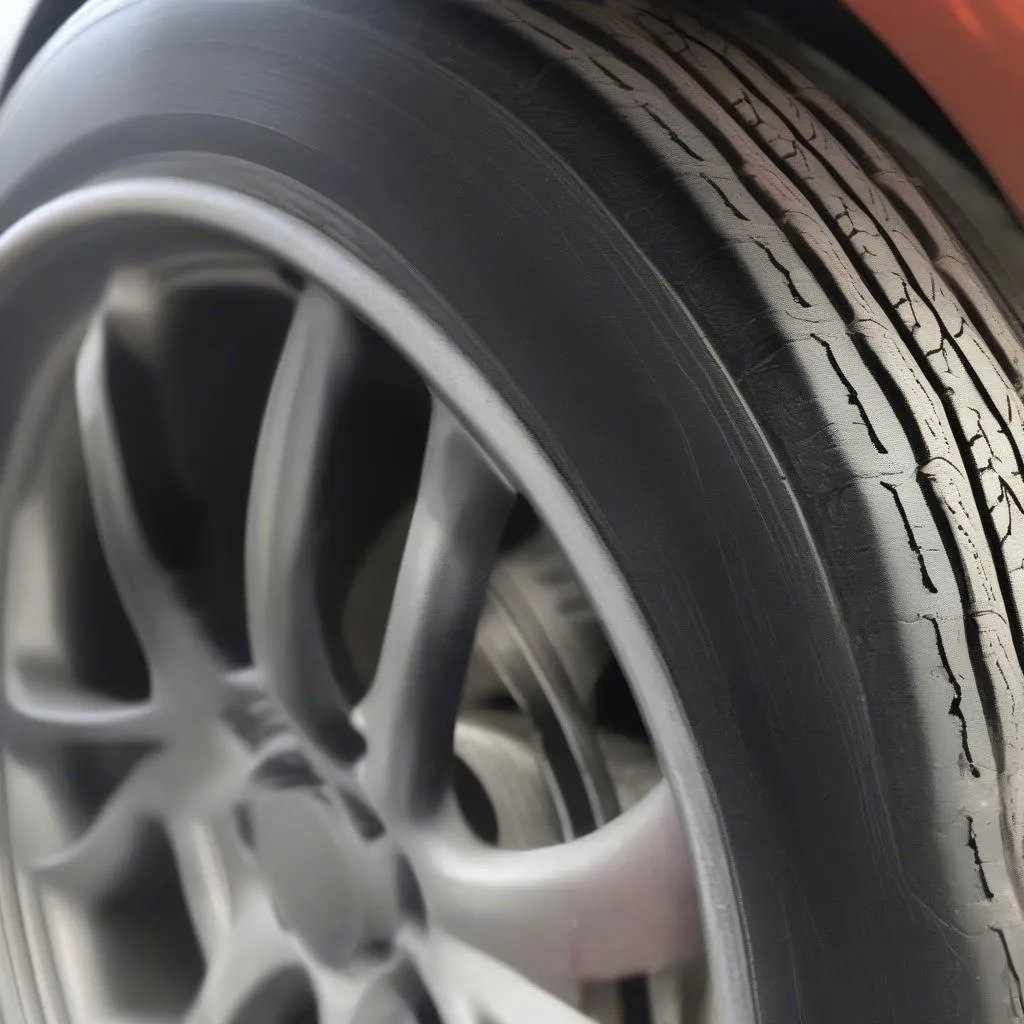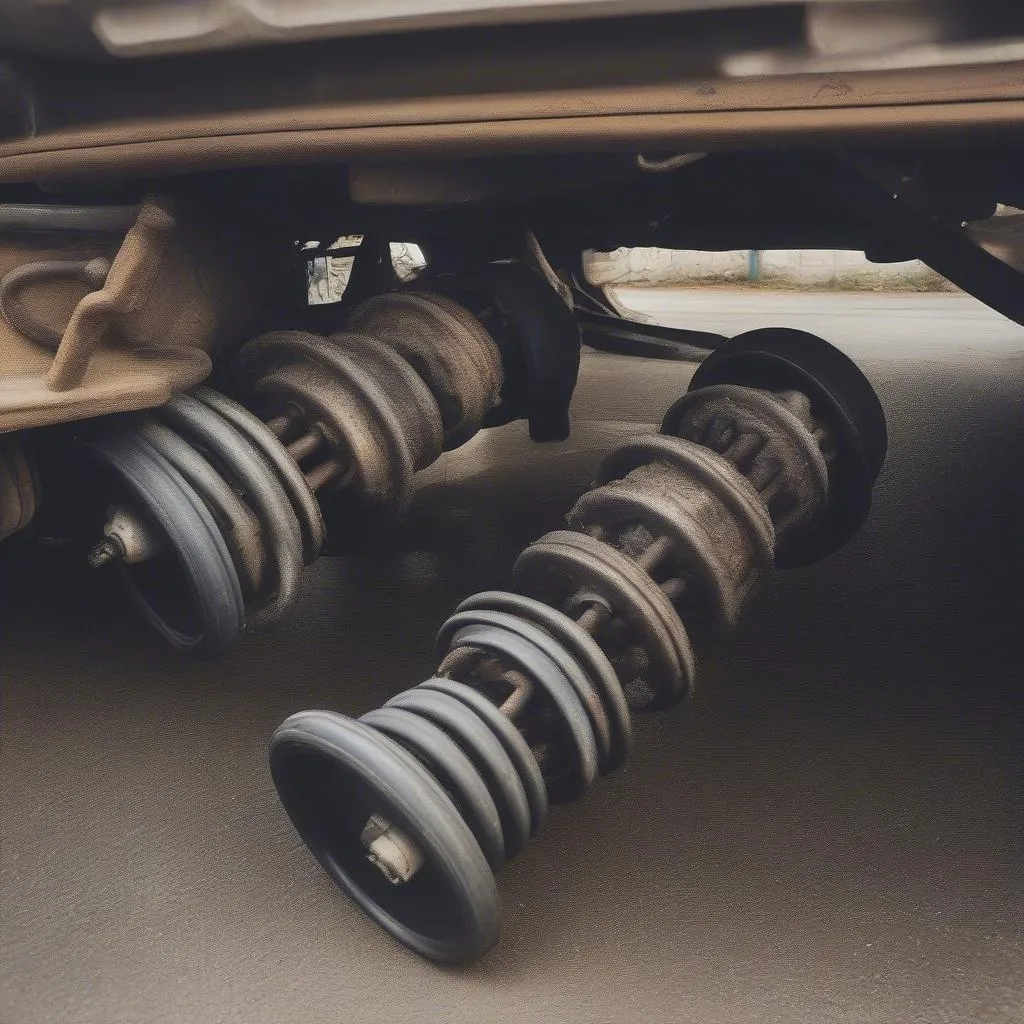Have you ever been cruising down the road, enjoying the open highway, when suddenly your car starts vibrating? It’s a disconcerting feeling, and you might be wondering what on earth is going on. Don’t worry, you’re not alone! This is a common issue that many car owners face, and in this article, we’ll dive into the possible causes and solutions to help you get back on the road smoothly.
Understanding the Cause of Car Vibration
The culprit behind your car vibrating can be a wide range of factors, from a simple issue like low tire pressure to more complex problems like engine misfires. Understanding the root cause is essential for diagnosing and fixing the problem.
From a Mechanic’s Perspective
Imagine you’re a mechanic at a bustling garage in New York City. Cars come in all shapes and sizes, each with its unique quirks. One day, a customer drives in, his face etched with worry, complaining about a strange vibrating noise coming from his car. You know that a vibrating noise can be tricky to pinpoint, but with your years of experience, you start systematically checking everything.
Firstly, you examine the tires for uneven wear or low pressure. Next, you inspect the suspension components like shock absorbers and control arms for wear and tear. Then, you move on to the engine, checking for any potential issues like misfires or loose engine mounts. It’s a methodical approach that often leads to the culprit.
From a Technical Perspective
Technically speaking, vibrations in a car are often caused by imbalances in the rotating parts of the vehicle. This could include the wheels, tires, engine, drive shaft, or transmission. These imbalances can result from various factors such as worn-out parts, misalignment, or even a build-up of debris.
The Economic Perspective
Vibrations in a car can be more than just an annoying sound. They can also lead to premature wear and tear on your vehicle’s components, potentially causing costly repairs down the line. For example, a misaligned wheel can cause uneven tire wear, leading to a need for replacement sooner.
Common Causes of Car Vibration
1. Tire Problems
 tire_problem_car_vibration
tire_problem_car_vibration
The most common cause of car vibration is often a tire issue. This could be due to:
- Uneven Tire Wear: Worn-out tires or those with uneven wear patterns can cause vibrations, especially at higher speeds.
- Low Tire Pressure: Underinflated tires can lead to instability and vibrations.
- Tire Balancing: If your tires are not properly balanced, they can cause vibrations, especially at certain speeds.
2. Wheel Alignment Issues
 car_wheel_alignment_issue
car_wheel_alignment_issue
Another common cause of car vibration is wheel alignment problems. When your wheels are out of alignment, they don’t roll smoothly, causing vibrations and potentially premature tire wear.
3. Suspension Problems
 car_suspension_problem
car_suspension_problem
Worn-out shock absorbers, loose control arms, or damaged springs can all contribute to vibrations, especially when driving over uneven surfaces. These components play a crucial role in absorbing shocks and maintaining stability.
4. Engine Issues
Vibrations can also be caused by engine problems, such as:
- Misfires: An engine misfire occurs when one or more cylinders fail to ignite properly. This can cause a noticeable vibration, especially at idle or low speeds.
- Loose Engine Mounts: Engine mounts are responsible for isolating the engine from the car’s body. If they are damaged or loose, it can cause vibrations to transfer into the cabin.
5. Drive Shaft Problems
A damaged or worn-out drive shaft can also lead to vibrations, particularly at higher speeds.
Identifying and Fixing the Vibration
If your car is vibrating, the first step is to identify the source of the vibration. Pay attention to the following:
- Speed: Does the vibration occur at specific speeds?
- Road Surface: Does the vibration occur on all road surfaces or only on rough roads?
- Sound: Does the vibration come with a specific noise, like a rattling or humming sound?
Once you have a better understanding of the vibration, you can start troubleshooting.
Here are some tips:
- Check your tires: Make sure your tires are properly inflated and check for any signs of uneven wear.
- Get your wheels aligned: A proper wheel alignment can help eliminate vibrations caused by misalignment.
- Inspect your suspension: Have a mechanic inspect your suspension components for signs of wear and tear.
- Diagnose engine problems: If you suspect an engine problem, take your car to a mechanic for diagnosis and repair.
FAQs About Car Vibrations
Q: How can I prevent car vibrations from happening?
A: Regular maintenance is key to preventing car vibrations. This includes:
- Regular tire rotations: Rotating your tires regularly can help prevent uneven wear.
- Tire pressure checks: Regularly checking your tire pressure can ensure they are properly inflated.
- Suspension inspections: Have your suspension components inspected regularly by a mechanic.
Q: My car vibrates only when I brake. What could be the problem?
A: This could be a sign of warped brake rotors. Warped rotors can cause vibrations when braking, especially at low speeds.
Q: My car vibrates when accelerating. What could be the problem?
A: This could indicate a problem with the engine mounts or the drivetrain.
Q: What are the best ways to diagnose car vibrations?
A: The best way to diagnose car vibrations is to take your car to a qualified mechanic. They can use specialized equipment to identify the source of the problem.
Q: How much does it cost to fix car vibrations?
A: The cost of fixing car vibrations can vary greatly depending on the source of the problem. Simple issues like tire balancing can be relatively inexpensive, while more complex repairs like replacing engine mounts can be more costly.
Get Help From The Professionals
If you’re experiencing car vibrations and are unsure how to address them, don’t hesitate to reach out to us! Our team of automotive professionals can help you diagnose and repair the issue quickly and efficiently. We’re equipped with the latest diagnostic tools and have extensive experience working on all types of vehicles.
Contact us today via Whatsapp at +84767531508 for expert advice and repair solutions.
Conclusion
A vibrating car can be a frustrating and sometimes worrying experience. However, by understanding the common causes of car vibrations and following our troubleshooting tips, you can often identify and resolve the issue on your own. If the problem persists or seems too complicated, don’t hesitate to seek professional help. Remember, regular maintenance and prompt attention to any unusual sounds or vibrations can help keep your car running smoothly and safely for years to come.
Do you have any questions about car vibrations? Leave a comment below and we’ll be happy to help!
We encourage you to explore our other resources on diagnosing and repairing auto problems: